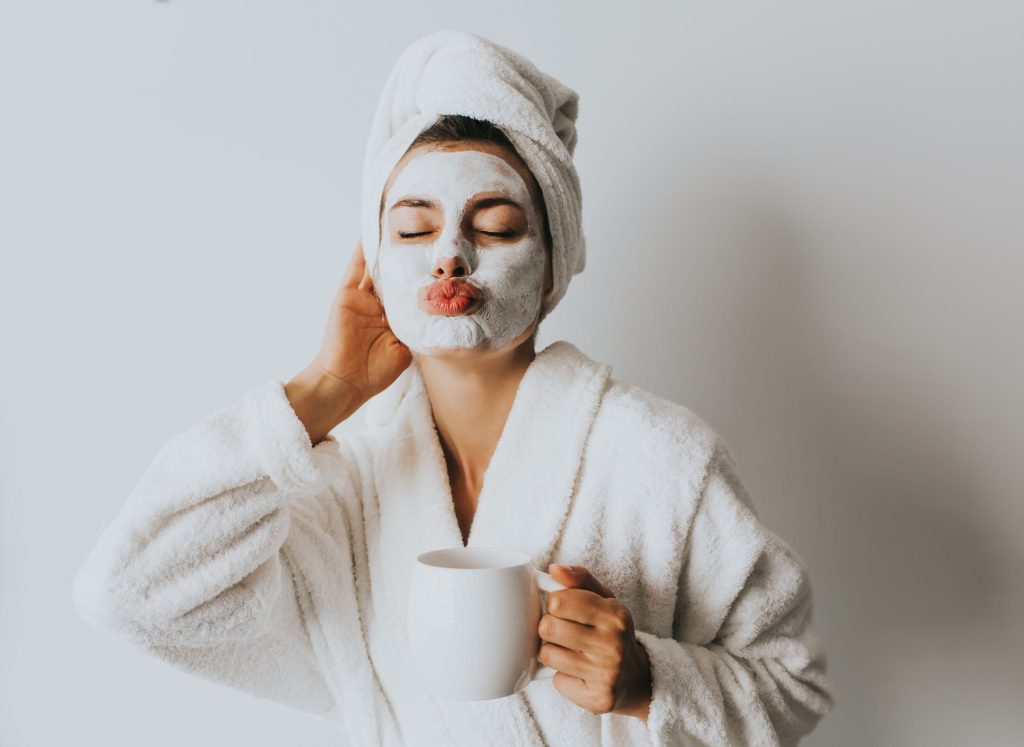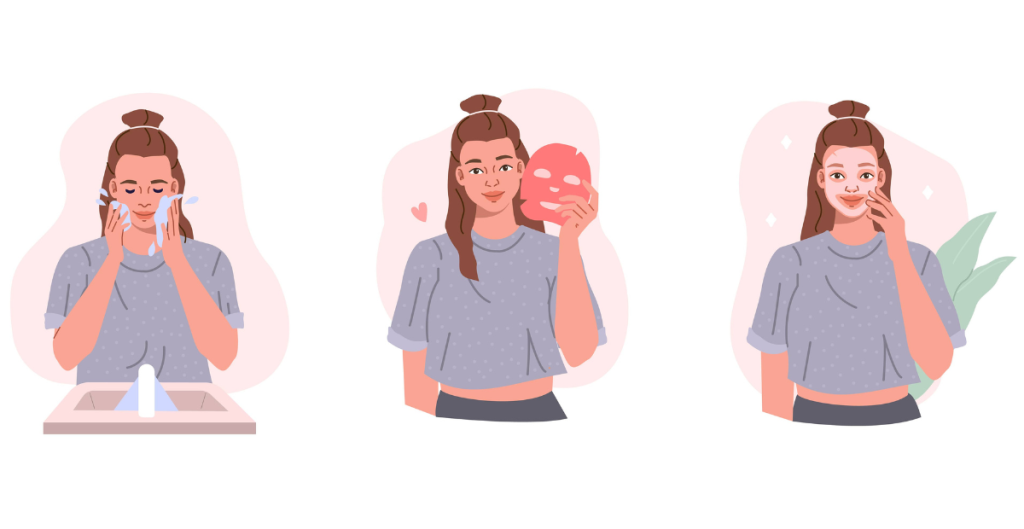Sheet Masks vs. Rinse-Off Masks: Which Win?

While not rivals and complete opposites, sheet masks and wash-off masks are different. “Just how different? Should I be using both types? Do sheet masks work?” Let’s dive straight into all the deets.
Are Sheet Masks Good for Your Skin?

In 2016, sheet masks were the young leaders of the craze over Korean skincare. Maybe you’ve even tried the viral “one day, one pack” method. Fast-forward to 2024—and they are ubiquitous; you probably can’t walk past them at Sephora and not grab a few “just to try”. So what benefits do these sticky guys bring to the table?
- Most sheet masks have one mission—to leave your skin moisturized and plump. Hyaluronic acid, squalane, glycerin, ceramides, or other active ingredients added to the sheet’s serum make this magic happen. Plus, in most sheet masks, their concentration is even higher than in topical products.
- The extra mechanical pressure they create supercharges the moisturizing effect, meaning once the skin drinks up all the good stuff, it gets trapped on its surface. This same benefit makes owners of acne-prone skin gun-shy about using them (more on that later).
- Their speedy effect and convenient packaging make them a great pick whenever you need to refresh your skin asap. For example, when on flights (the pressured air on planes is notorious for dehydrating you like crazy) or prepping your skin for a gorg makeup. On top of that, most masks don’t need rinsing off (unless the label clearly states the opposite). Just a reminder—leave sheet masks on for 30 minutes tops, otherwise your skin might get “overfed” and angry.
- And what about exfoliation, soothing, and cleansing? Sheet masks created with these goals in mind are on the market, too, but their choice is by far smaller compared to that of wash-off masks.
- Most masks are vacuum-sealed, so you don’t have to worry about them not being hygienic enough.
Sheet Masks Unmasked: the Cons
Just spend fifteen minutes looking like a glazed ghost, and voilà—you get beaming skin. Sounds superb, right? The flip side is that such masks give you only a temporary easy fix for dehydrated skin, and the effect doesn’t build up. The short time that sheet masks stay on your face isn’t enough for the components to penetrate deeply into the skin, so they can’t fully replace a quality moisturizing cream or serum.
“And what if I have oily, acne-prone skin?” Well, sheet masks may not be perfect matches for you, as such products are occlusive, meaning they “seal” your skin, which in turn increases its temperature. This rise prompts more bacteria, boosting the chances that the product will clog your pores or exacerbate existing breakouts. Does this mean you should swear off them? Not necessarily—stick with the tried-and-tested ones and don’t go overboard with how often you use them (once a week is enough). Still curious to try new ones? Use ingredient scanners like OnSkin to detect any pore-clogging components in the mask’s formula.
Their effects aside, it’s also their texture and application process that might give you the ick. From tricky unwrapping and a bad grip on your skin to overly saturated, king-sized sheets… You probably know how messy it can get. And serum getting into your hair can be even more irritating than fixing uneven winged eyeliner at the last minute!
What About the Classics?

Imagine a wardrobe filled with hoodies of various colors and unique details. That’s what most sheet masks are, as they essentially serve the same purpose.
On the other hand, rinse-off masks (also often dubbed traditional, or wash-off masks) offer a more versatile wardrobe, ranging from hoodies and mini-dresses to coats. So their selection is not limited to moisturizing only; you’ll find a gazillion of pore-minimizing, brightening, soothing, and exfoliating rinse-off masks.
That’s why if you’re dealing with blemish-prone, oily, or mixed skin, it’s worth diving into traditional masks deeper than into their sheet counterparts. Star ingredients in them like clay, mud, charcoal, sulfur, niacinamide, various acids (like alpha-hydroxy acids, lactic acid, or salicylic acid), and many others will complement your routine and give it the extra support it needs to thrive.
On a more boring note, as we apply such masks with fingers or a brush or spatula, you may want to be extra careful about the cleanliness of your hands and accessories. Sorry for our elementary-school-teacher voice, but it’s THIS important. Plus, proper storage is king—ensure the cap is securely closed, and wipe away any excess product around the edges.
So Who Wins?

We know how satisfying definite answers can be, but when it comes to skincare, it’s often anything but cut and dried. The effectiveness of masks depends on your skin type and goals. If you just need a moisture boost before a date and your skin is usually well-behaved, sheet masks are for the win. Perhaps they ARE one-trick ponies, but the answer to “Do sheet masks work?” is definitely yes.
Seeking more profound exfoliating, pore-cleansing, brightening, or soothing benefits, but your skin tends to throw tantrums over the smallest things? Then the answer to “Do sheet masks work?” is more of a no—consider going with wash-off masks instead.
And no matter which masks you eventually choose to apply, they are always a perfect addition for a stay-in Friday night with girl dinner and a silly movie. Long live face masks!
P.S. Have you ever bought a cosmetic product because of that delicious-looking peach on the package or the brand’s big name? We can relate. However, the skin doesn’t care much about the package or brand. So if you’re often bamboozled when shopping for cosmetics (aren’t we all?) and never remember which ingredient does what or how to choose what’s best for you, consider using an ingredient scanner. Apps like OnSkin will show if a product is good for your skin or hair and what experts have to say about it.

